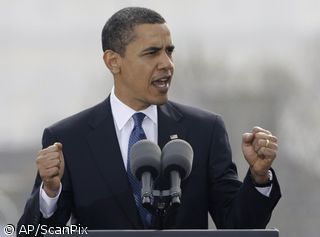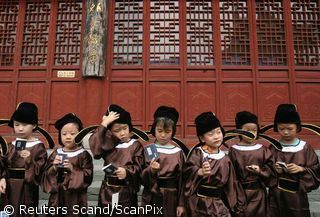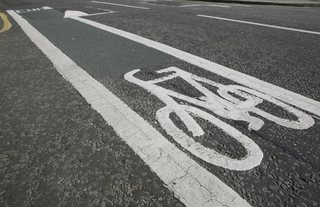Many more workers have arrived in Britain from Eastern Europe since enlargement of the EU in May than the Government predicted, figures showed yesterday
Published:
11 November 2004 y., Thursday
Many more workers have arrived in Britain from Eastern Europe since enlargement of the EU in May than the Government predicted, figures showed yesterday.
Nearly 91,000 people from the eight former Soviet-bloc states that joined the EU registered to work in the first five months after the expansion. The Tories said many others may have taken on a job without registering.
In the run-up to enlargement, ministers dismissed suggestions of a major influx of migrant workers and regularly cited an official estimate of between 5,000 and 13,000 additional arrivals per year.
The latest figures are seven times that forecast in under half the period. However, David Blunkett, the Home Secretary, said they showed that the worker registration scheme, set up to dampen controversy over enlargement, was operating effectively.
Normally, EU citizens can travel freely to settle and work in other member states. But the 15 existing members were allowed to operate controls on migration from the new states for up to seven years.
While most governments imposed restrictions, Britain decided not to. The Government said Britain needed more workers but it faced accusations of failing to protect the country's borders. It decided to establish a registration scheme to discourage new arrivals from working in the black market.
The Home Office said 45 per cent of those who had registered were already in the country. Mr Blunkett said the new arrivals, mostly aged between 24 and 34, had helped to fill job vacancies in hospitality and agriculture, and had legalised some who had not been paying tax.
Šaltinis:
news.telegraph.co.uk
Copying, publishing, announcing any information from the News.lt portal without written permission of News.lt editorial office is prohibited.
The most popular articles
 On 15 October, the President of the EP unveiled the names of the winners of the EP Prize for Journalism 2009.
more »
On 15 October, the President of the EP unveiled the names of the winners of the EP Prize for Journalism 2009.
more »
 “Lisbon treaty” - you may have heard quite a bit about it recently. Still baffled?
more »
“Lisbon treaty” - you may have heard quite a bit about it recently. Still baffled?
more »
 The 2009 World Food Day on 16 October is marked by an EU stronger than ever in its commitment to improve access to food around the world.
more »
The 2009 World Food Day on 16 October is marked by an EU stronger than ever in its commitment to improve access to food around the world.
more »
 One of the first signs of the new political mood in the European Parliament after the election is the reversal of its position over rules on working times for lorry drivers.
more »
One of the first signs of the new political mood in the European Parliament after the election is the reversal of its position over rules on working times for lorry drivers.
more »
 Do you feel like doing a 5-month traineeship in the European Parliament? If so then Thursday 15 October is the deadline to apply.
more »
Do you feel like doing a 5-month traineeship in the European Parliament? If so then Thursday 15 October is the deadline to apply.
more »
 The European Commission has provided € 32 million in assistance to 22 African Caribbean and Pacific (ACP) countries 1 over a period of 6 years to help fight poverty and to increase access to and quality of sexual and reproductive health services and commodities.
more »
The European Commission has provided € 32 million in assistance to 22 African Caribbean and Pacific (ACP) countries 1 over a period of 6 years to help fight poverty and to increase access to and quality of sexual and reproductive health services and commodities.
more »
 Challenging a long-standing taboo, U.S. President Barack Obama made a pledge to end restrictions on gays in the U.S. military.
more »
Challenging a long-standing taboo, U.S. President Barack Obama made a pledge to end restrictions on gays in the U.S. military.
more »
 The economic crisis has pushed an extra 90 million people into extreme poverty in the developing world and made 23 million people unemployed.
more »
The economic crisis has pushed an extra 90 million people into extreme poverty in the developing world and made 23 million people unemployed.
more »
 In the Chinese capital where the nation's one-child limit is rigidly enforced twins, triplets and quads get together to celebrate the fact they have brothers and sisters.
more »
In the Chinese capital where the nation's one-child limit is rigidly enforced twins, triplets and quads get together to celebrate the fact they have brothers and sisters.
more »
 It's called the Brompton folding bike world championships but it really is an awfully British affair.
more »
It's called the Brompton folding bike world championships but it really is an awfully British affair.
more »